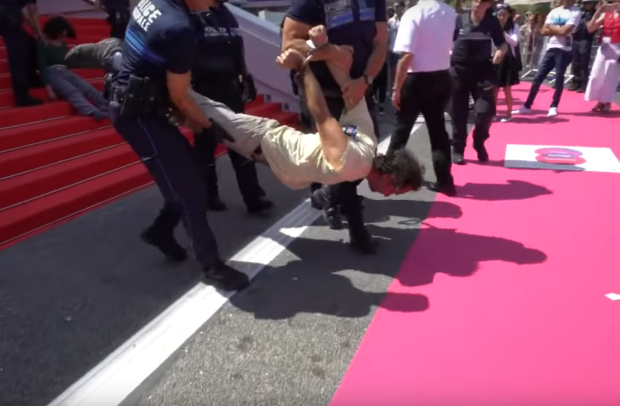
How Brands Cannes Clean Up Their Act: Sustainability on the Croisette

Cannes Lions made a sizeable amount of noise about sustainability ahead of last week's festival. Building on its launch of the Sustainable Development Goals Lions in 2018, Cannes announced Deloitte Digital as its first ever official sustainability partner, aimed to drive the agenda at both the festival and within the industry more broadly.
Unsurprisingly, the topic of sustainability was one of the most common on the Croisette last week, from some of the most successful campaigns, such as Volvo's EVA Initiative which picked up a Grand Prix in Creative Strategy, to the reusable water bottles handed out to all delegates.
What's more, the topic was brought front and centre when environment focused activist group Extinction Rebellion stormed the Palais' red carpet steps on Wednesday afternoon, before taking their protests to the Facebook Beach the following day. A big contingent of the group's members are reportedly ad industry employees. According to Extinction Rebellion, 14 protesters were arrested on Wednesday, with people also seen being dragged away from the Facebook Beach on Thursday. The reaction to the protests has drawn some criticism.
But people we caught up with throughout the week spoke positively of the festival's attempts to address its carbon footprint and for encouraging conversation around the issue.
“I think they’re taking small steps," Alice Bottaro, creative director at antoni and a member of the Outdoor jury, told us. "When you organise a huge event it’s really difficult. In my jury they tried not to waste paper, so when they printed something once, they just collected the copies in the evening and brought the same copies in the morning. It’s a tiny thing but if you had to print 200 copies every day... Thousands of people fly in and we produce a lot of waste and then in the evening we meet and celebrate campaigns that have a positive impact on the environment. So yes there is a contradiction in that. But any big conference has to work with these issues.”
Myles Lord, the managing creative director at Serviceplan Berlin, noted contradictions on the matter during his time on the Direct jury last week. “You see so much contradiction. For example, this fantastic campaign for a soda brand and how they converted people and stuff and then the very next case is how much plastic is in the ocean. You see the same brand floating around. So what are they doing?”
He also pondered advertising's role in creating the need for such initiatives in the first place. "In a way maybe this whole purpose driven stuff is a reaction to the consumerism that we’ve created. Now we have to do something about it.”
A common thread of conversations we had during the week centred around the importance of sustainability in brands' actual supply chains, ensuring that they didn't just push the agenda for the sake of a campaign. For example, Coca-Cola Italy's brilliant billboards encouraging drinkers to recycle their bottles are positive - but wouldn't it be better so if the brand just kinda stopped putting its drink in plastic bottles instead?
Maribel Vidal Giménez, director of strategic planning at McCann Chile, believes that "brands definitely have a lot to say" when it comes to the fight for a more sustainable future. "Right from the design of the packaging, at the very start of the process, a brand can choose to make a contribution to sustainability or not," she says.
Tyler Turnbull, FCB’s group CEO of its New York and Canada offices, cited BMW as the perfect example of a brand exercising sustainable practice through every aspect of its production line, from not allowing plastic bottles and printed paper in meetings to sourcing and producing all parts for its vehicles in a sustainable way.
“What I love about that approach is that it’s authentic and real,” he says. “As this issue becomes more important, brands can run the risk of appearing surface level if their commitment to sustainability is for an ad campaign.
“We’re going to see more fundamentally sustainable approaches from brands but the ones that are just doing it a campaign level are going to get called out. And rightfully so.”













